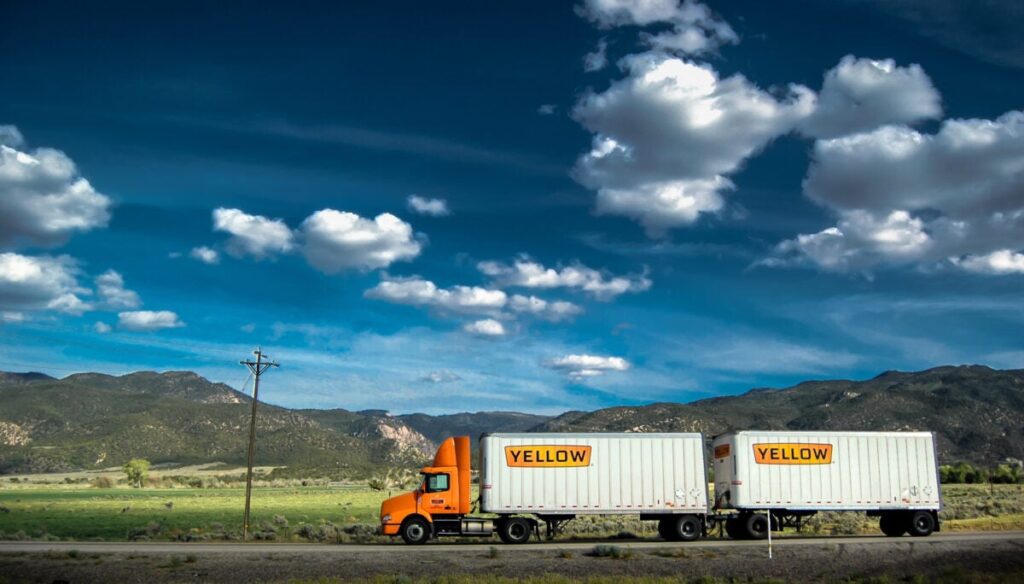Last month, the Teamsters union reported that Yellow (NASDAQ: YELL), one of the largest trucking companies in the U.S., informed them that it would run out of cash by August. To prevent this crisis, Yellow’s executives told the Teamsters, representing about 22,000 Yellow workers, that operational modifications, which the union had previously sanctioned, must be implemented.
In a video statement on June 12, O’Brien declared, “It is not left for the Teamsters to save this company; we have given enough. What happens next is out of our control.” Just twelve days later, he tweeted an image of a gravestone labeled Yellow, 1924 to 2023.
It’s not uncommon for union leaders to challenge companies asserting financial limitations regarding benefits. Yet, O’Brien’s statement has surprised some in the trucking industry, as Yellow genuinely faces bankruptcy, potentially displacing tens of thousands of unionized trucking jobs. Heavy Duty Trucking previously referred to Yellow Corp. as the “cat with nine lives” in 2010 after narrowly avoiding closure, but the company has approached bankruptcy multiple times since then.
There’s also no indication that another unionized trucking company would emerge to hire the 22,000 laid-off workers. Participation of union jobs in the less-than-truckload sector, where Yellow ranks third, has significantly declined over recent decades.
On the surface, it seems puzzling that O’Brien would prefer the company to close rather than fighting to preserve 22,000 Teamsters jobs. Generally, it is assumed that a less-than-ideal union position is preferable to being without a job altogether. However, labor experts suggest that this is indicative of a generational shift among union leaders like O’Brien and Shawn Fain of the United Auto Workers, who are no longer willing to compromise on job standards.
Labor attorney Benjamin Dictor, who represents Teamsters Local 804, which includes UPS workers, expressed, “There’s a generational shift that’s going on in labor.” He asserts that labor costs should now be considered a non-negotiable fixed cost, like fuel prices. He emphasized that if companies can’t afford labor expenses, they should exit the trucking industry.
Challenges Facing Yellow
Observers attribute Yellow’s difficulties to two main reasons: its unionized workforce, which lacks the flexibility of non-union labor, and mismanagement of its acquisitions. Transportation analyst J. Bruce Chan indicated that union labor incurs approximately 30% higher costs compared to non-union labor. The market share for unionized less-than-truckload carriers has fallen from 42% in 2002 to just 22% in 2022.
Nonetheless, both Chan and Satish Jindel, founder of SJ Consulting Group, note that Yellow’s challenges should not be blamed solely on the Teamsters. Jindel pointed out that ABF Freight, another unionized carrier, operates successfully in the same market segment as Yellow. ABF’s revenue per shipment during the first quarter of 2023 was approximately 56.2% higher than Yellow’s. Furthermore, ABF’s Teamsters employees recently ratified a five-year collective bargaining agreement, contrasting Yellow’s struggles.
Impending Bankruptcy Risks
Yellow’s existence has been precarious for the past 15 years, notably during the 2009 financial crisis when it managed to convert nearly $500 million of debt into equity with assistance from the Teamsters. During that time, the union made significant concessions, including a 15% wage cut and a suspension of pension contributions. Despite a recent 18% wage increase from a 2019 contract, Yellow seems to lack the government and union support needed for survival, heightening its bankruptcy risk.
The Teamsters indicated that over the years, Yellow has benefited from substantial wage and work rule concessions. A Yellow representative mentioned that if the union approves necessary network changes, employees would receive a $1.77 hourly wage increase.
Conclusion
Labor experts believe that the federal government is unlikely to provide a bailout for Yellow, especially as it has not requested assistance. The company’s recent plea to the White House asks President Biden to help facilitate negotiations with the Teamsters. Observers are divided on whether a full closure of Yellow would be in the best interest of its members, prompting ongoing discussions in the trucking industry about the viability of union jobs in a challenging market.


